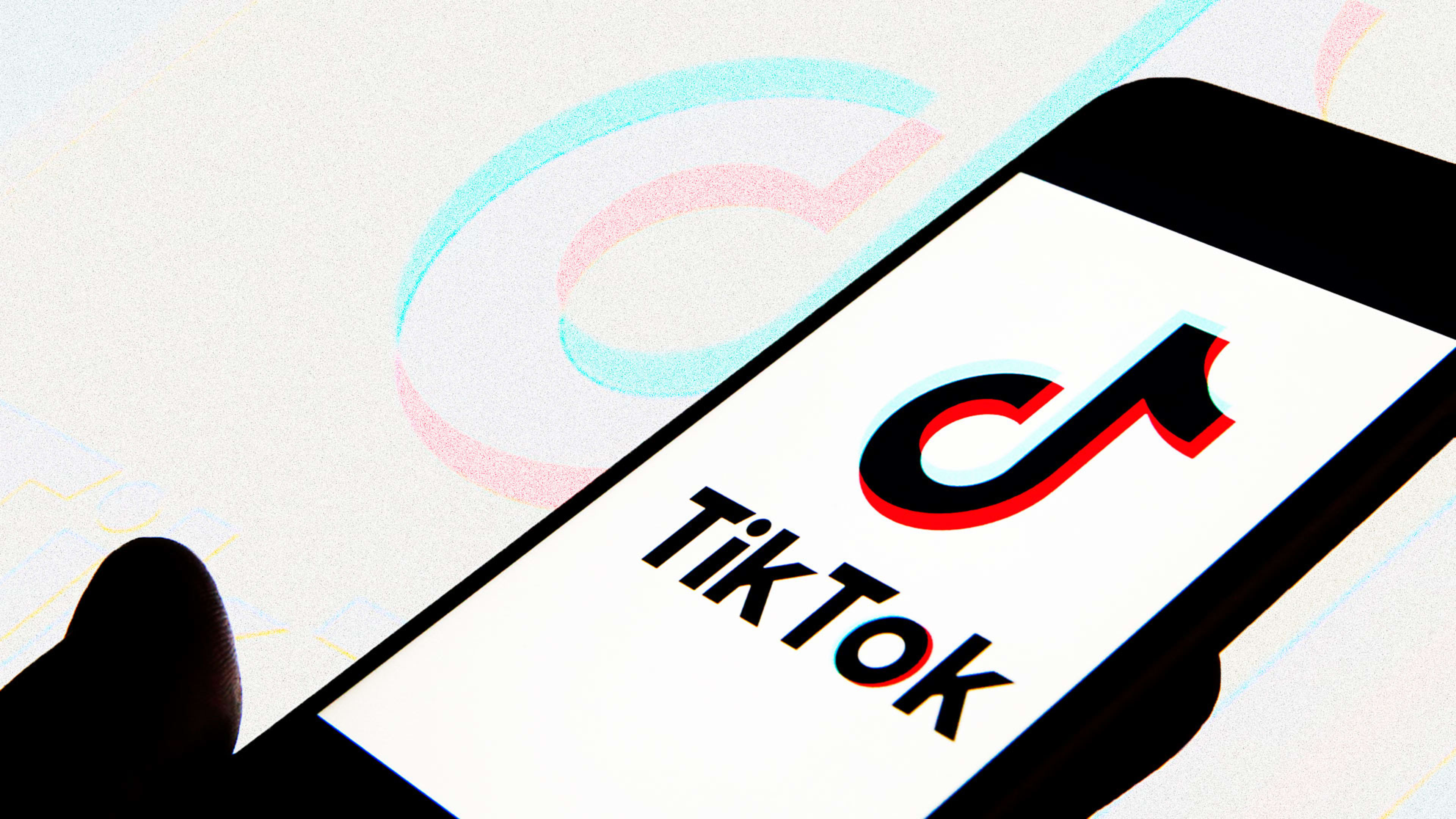“The audiences that love and build and create and connect with TikTok, they say they check Facebook, and they check Instagram and they check Twitter and they check Snap and they check things. But they don’t check TikTok. They tell us they watch TikTok.”
That’s how Khartoon Weiss, the head of global agency and accounts at TikTok, described the app in her keynote at the Gathering marketing conference last week—as an entertainment platform, not a social network.
It’s fascinating to hear first-hand how the short-form video app is positioning itself as it continues to gain popularity. With 1 billion monthly active users, TikTok sits in the top spot as the most-engaging social app, with an average user session of just under 11 minutes. This level of engagement has earned the company $821 million in revenue in Q1 of 2022 alone.
But is TikTok really a place where users just sit back and consume content, a social network where people share their perspectives to connect with others, or a combination of both? This definition is important to get clear on as TikTok has an undeniable impact on global culture and commerce. Businesses and consumers need to understand how the app is used and how the company operates to embrace its benefits and be mindful of its downsides.
Driving the narrative that TikTok is an entertainment platform, Weiss argued that “you can’t TikTok and…”—meaning users aren’t able to simultaneously TikTok and text, TikTok and Zoom, or TikTok and TV, due to the sound on, video-centric experience—in contrast to Instagram or Twitter, where it’s easier to scroll these services and multitask.
And whereas a key feature of a social network is the ability to connect directly with others, data shows that only 15 percent report using TikTok for direct user-to-user communication purposes.
“TikTok is so much more than social media. It is a place where creators inspire, educate or entertain,” says Mario Moreno, a creator on TikTok @followmario and former marketing lead at H&M and L’Oréal. “There are so many sub-categories within TikTok and the view time illustrates that people are on the platform consuming content not from a social standpoint but an entertainment and discovery standpoint.”
What’s surprising is that content fueling viewership only comes from a small subset of TikTok’s user base—a statistic similar to YouTube. Only 33.9 percent of TikTok users publish content to the platform, compared to 69.9 percent of Instagram users who publish their own photos and videos.
“I believe TikTok is a social media platform. It is a platform that relies on user generated content,” says Sam Dey, a social media consultant and LinkedIn Learning instructor. “There is also the ability to build an audience and become an influencer which are attributes I think are important for social media platforms.”
Netflix and Hulu offer entertainment to their subscribers, but aren’t considered social networks as their audiences aren’t able to produce content or react to content on their services.
The features allowing for two-way communication on TikTok certainly land the app more firmly in the social media category as there are more opportunities for interaction and dialogue.
“There’s so much negativity and negative connotations with being categorized as social and a social network, that it doesn’t offer the many advantages to be categorized as that. So it’s not surprising that TikTok and others would prefer you to think of them as entertainment,” says Matt Navarra, a social media consultant and industry analyst.
Another reason TikTok may be avoiding the label is the company is likely trying to market itself to advertisers as being a destination for entertainment, and a safer bet than social media, he added. Pinterest has tried to declare it isn’t a social network before, a similar move that didn’t stick.
A more realistic way to describe and categorize TikTok is that it’s a combination of an entertainment platform and a social network, as you have the option to create even if most people prefer to just watch.
“I think that they are both things. And they’re both things to most people,” says Navarra.
Like YouTube, it’s fair to say that TikTok is a social network that’s entertainment-focused given all the features the network has that fall under both categories and its variety of use cases.
A final point to consider is how TikTok plans to evolve. Weiss mentioned in her talk that becoming a super app is likely a path the company will explore.
Super apps like China’s WeChat allow users to chat with friends, make payments, purchase products, and much more, all from one service, which TikTok wants to emulate.
It’s unclear how this will unfold, but working to shift the perception of the app to a broader category like entertainment is a logical step towards expanding TikTok far beyond social media.
Brian Honigman is a marketing consultant, adjunct professor, and LinkedIn Learning instructor.
Recognize your brand’s excellence by applying to this year’s Brands That Matter Awards before the early-rate deadline, May 3.
